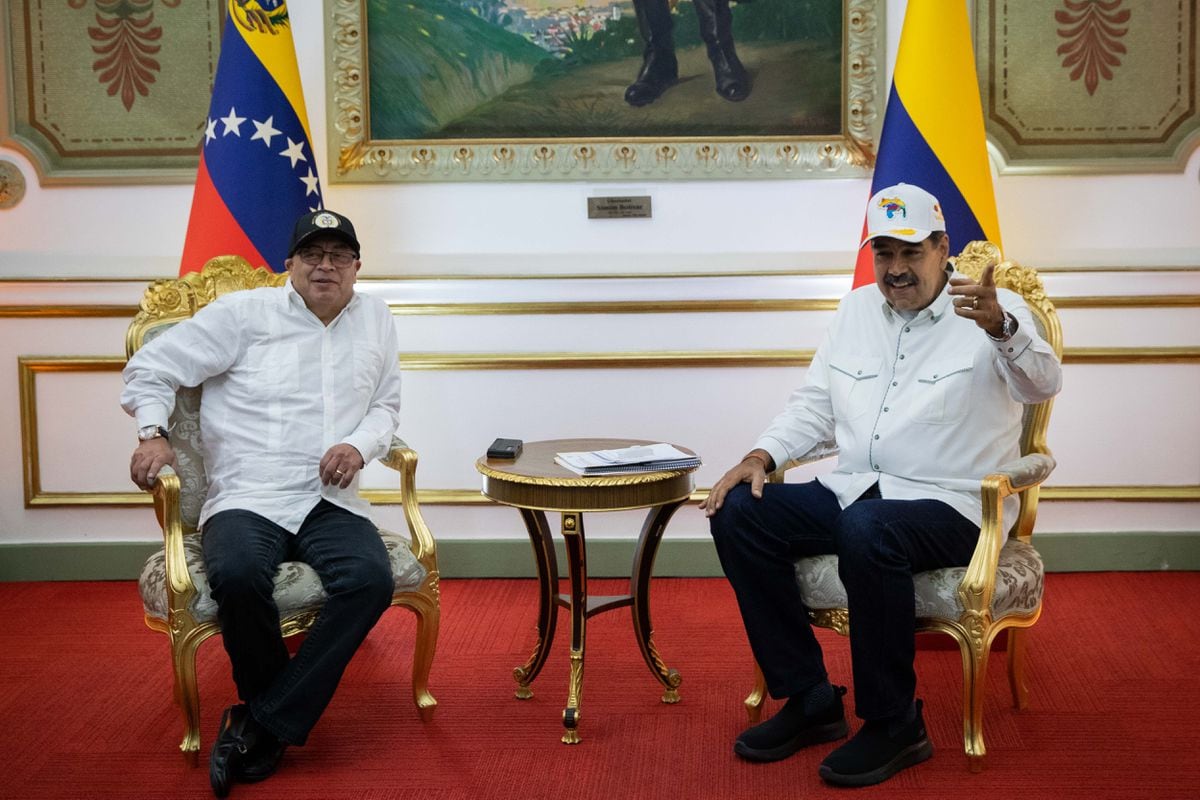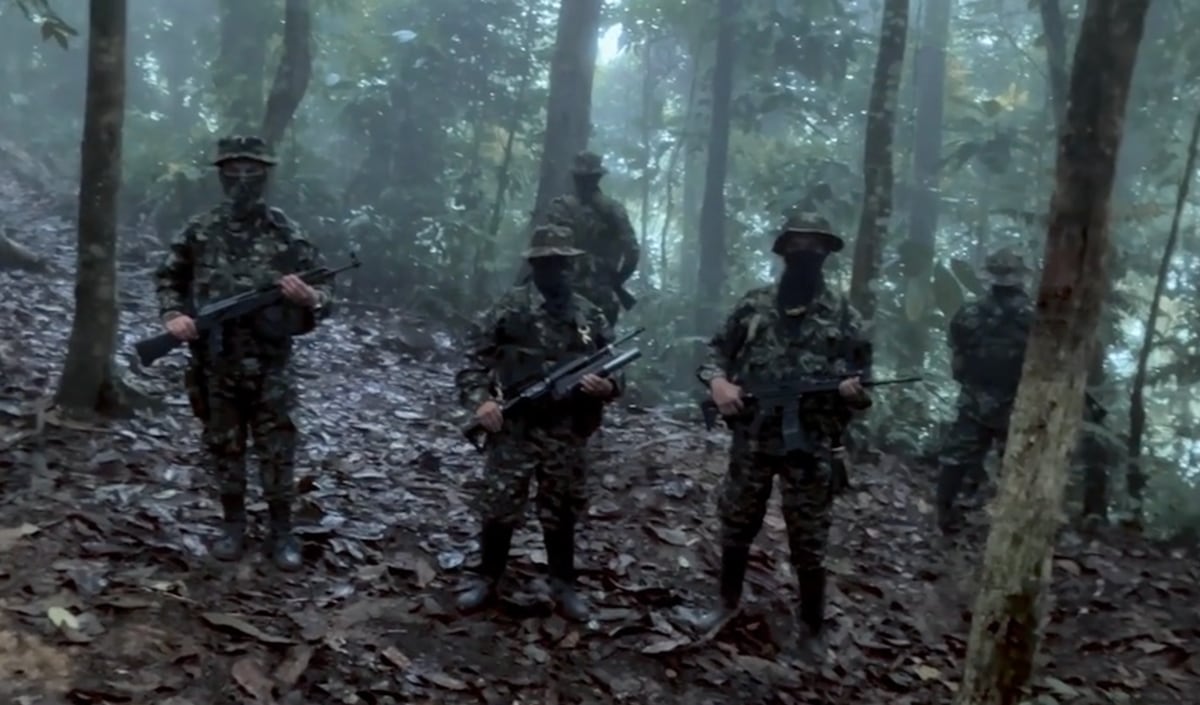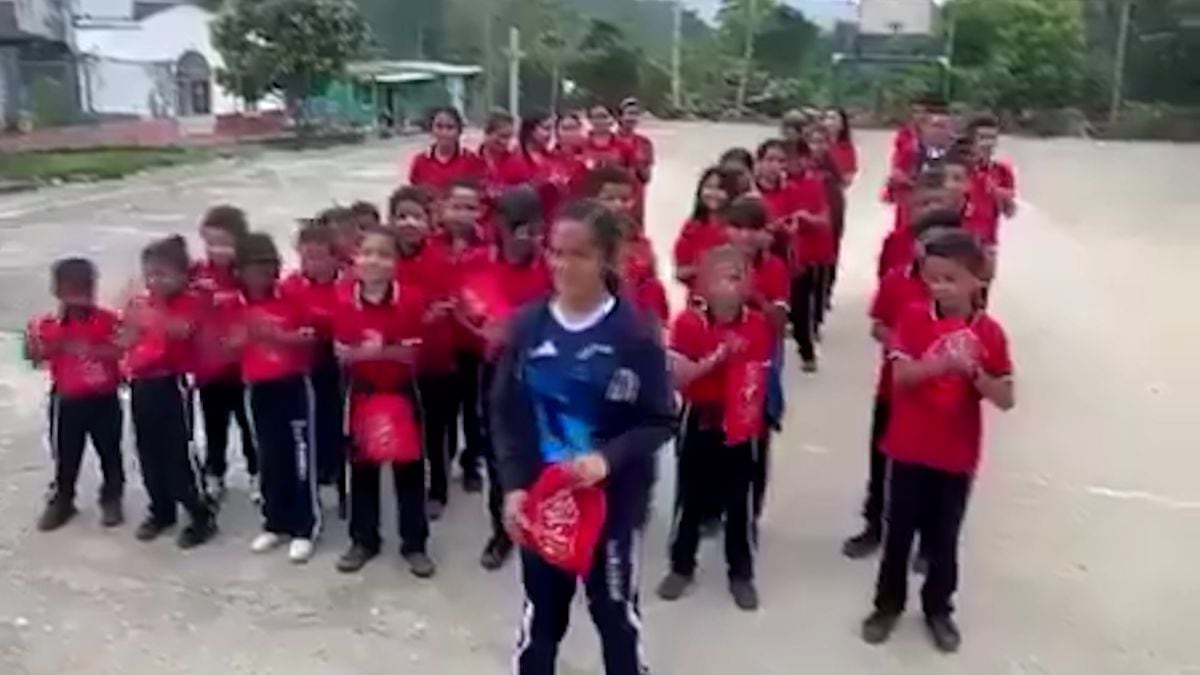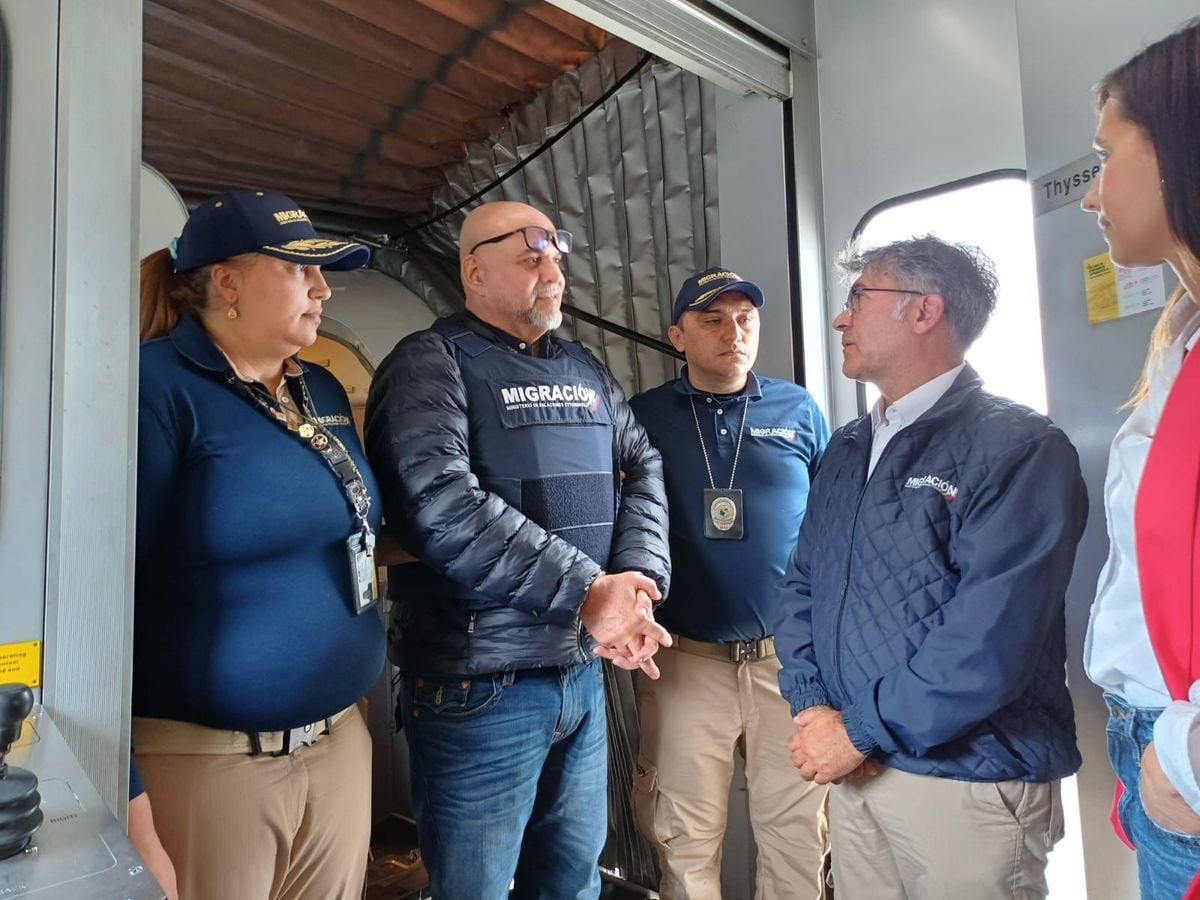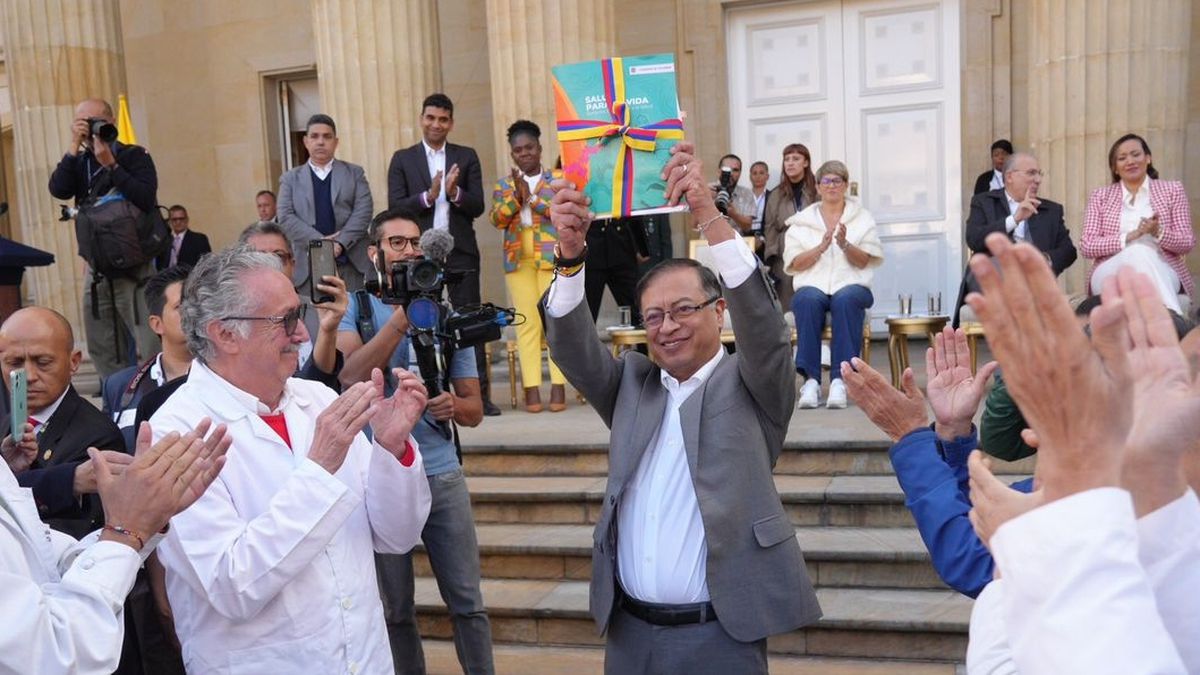Duque exalts diplomatic siege and recognizes "error" in forecast about Maduro 8:28
(CNN Spanish) --
During four years of government, President Iván Duque has shown himself abroad as a strong supporter of the Peace Agreement in Colombia, signed in 2016 between the now demobilized FARC guerrilla and the government of Juan Manuel Saints.
However, many of Duque's actions within the country would have given a different message than the one he declares on international stages.
Here are some of the most memorable that he leaves his "Peace with legality", by the way, a name that was one of the first changes he made to the pact between the Colombian State and the Revolutionary Armed Forces of Colombia.
The six objections to the JEP
It was considered by the opposition as the first blow that Duque dealt the Peace Agreement, or at least the most frontal.
When he had been in office for six months, the young president received from the hands of Congress the statutory law of the Special Jurisdiction for Peace, that body created after the agreement to administer transitional justice and judge the crimes committed during the armed conflict.
The regular conduct was for Duque to sanction that law.
However, a month after receiving the document, the president announced in a speech in March 2019 that he was going to object to six of the 159 articles that the statutory law had.
Duque's objections focused on what he considered a lack of clarity in the obligation of the perpetrators to fully compensate the victims,
After two months of analysis, discussions and many headlines, in May 2019 the Constitutional Court left the president's "buts" groundless.
Duque had to sanction without changes an already delayed statutory law for the JEP to start working.
The controversial director of the Historical Memory Center
The appointment of historian Darío Acevedo as director of the National Center for Historical Memory raised many blisters in the victims due to Acevedo's positions on how to frame the acts of violence in Colombia, something that did not change President Duque's decision in his appointment .
For many years, state officials in Colombia did not talk about armed conflict.
Under the presidency of Álvaro Uribe, for example, for the president "there was no such phenomenon."
It was all about "generalized violence by illegal armed groups."
Acevedo, who had to continue the task of reconstructing the historical memory of the armed conflict in Colombia, was seen by victims' organizations and the National Association of Historians as a "denier" of the conflict.
For Duque, this did not seem to be a problem, since, above all requests, he confirmed his appointment in February 2019.
advertising
After that, several victims' organizations, including the one for the Bojayá massacre (which occurred in 2002, in which around 120 people died), announced the withdrawal of all the material they had delivered to the National Center for Historical Memory.
Acevedo defended his appointment and resume, said that he would respect the work of the Historical Memory Center and said: "From when to here having a political option implies being biased and incidentally not knowing the academic trajectory? I reiterate, I am a total enemy of the official truths.
The Colombia that Iván Duque leaves: challenges, failures and achievements
Budget for the JEP
In the midst of hearings for false positives (the extrajudicial executions committed by some members of the Colombian Armed Forces to increase the number of allegedly killed in the guerrilla fight), kidnappings or disappearances, the Special Jurisdiction for Peace has had to deal with another challenge: the low budget assigned to it to operate.
According to the JEP, its financing has always been below what it would require for the missions granted to it in the Peace Agreement.
However, in 2020 when President Duque entered the scene with more prominence to deny the JEP an additional 30,000 million pesos (about US$7,200 million) that he had requested for 2021.
According to the JEP, the support of the international community has been vital to continue operating, but not only in the economic field.
The tweets, messages and hints of President Duque attacking the JEP ceased, according to the same Jurisdiction, when the prosecutor of the International Criminal Court decided to close in 2021 the preliminary examination that had been open for 17 years on alleged war crimes and crimes against humanity. in Colombia during the armed conflict, on the condition that the JEP be respected and supported.
Duque, who in public statements had asked the JEP for speed in justice, did not publicly refer to that body's budget, although his party, Democratic Center, criticized the JEP at that time and said that its results have been "deplorable".
Duque, for his part, after the ICC closed the investigation against Colombia, said that he promised to continue supporting the JEP.
In 2022, the outgoing president praised the JEP before the International Criminal Court in February in The Hague, but rejected the reparations managed by that entity.
The agony of the seats
The Peace Agreement provides political participation to those regions most affected by the armed conflict.
To do this, among others, it created 16 seats in the House of Representatives for those who represent the victims who live in territories impacted by this situation.
It's an easy read, but making this point a reality took four years.
The creation of these seats collided with the fierce opposition of the Democratic Center, the party of Duque and Álvaro Uribe, which assumed that those who reached these positions would have affinity with the former guerrillas, who also had seats.
This political opposition became entangled with the voting mechanics in a conciliation process between the Chamber and the Senate in 2017, when Duque was a senator.
And when it was thought that this representation of the areas that suffered the conflict was dying, the Constitutional Court arrived and gave the process mouth-to-mouth breathing.
The act of resuscitation that the Court had carried out was again attacked by Duque as president, in 2021: the Administrative Department of the Presidency filed an appeal for annulment before the decision of the Constitutional Court.
Hours later, the Presidency withdrew that appeal.
Two months later, some headlines read: “Peace Seats Must Be Enacted Immediately: Duke” (the president was speaking from South Korea).
The then Presidential Adviser for Stabilization, Emilio Archila, said that he withdrew that appeal by order of Duque "and his respect for the institutional framework," abiding by "the last judicial instance."
Protection of ex-guerrillas
Abroad, Duque has repeatedly highlighted the process of reincorporation of former guerrillas within the Peace Agreement, as he did in 2019 in the UN General Assembly and in April 2022 before the UN Security Council.
However, during his four years in office, the murder of ex-combatants has been an enormous challenge to overcome and the point for which he has entered into controversy with bodies such as the Special Jurisdiction for Peace and the Constitutional Court itself.
A ruling of the JEP of July 2020 ordered the Executive to articulate its institutions to provide effective protection to those who had laid down their arms.
In November of that year, these murders already totaled 249.
In 2021, the JEP also drew the attention of the Government for attributing these murders only to drug trafficking or to quarrels with those who had not accepted the peace agreements and demobilized.
For the JEP, there were other patterns, one of them, the murder of ex-combatants with a certain degree of leadership in the substitution of illicit crops or campaigns for access to land.
At that time, the Government responded that "it will continue to coordinate all the entities that adopt measures for protection."
Duke's final act
If his entrance to the presidency was marked by the objections to the JEP, the beginning of his departure was sealed with the empty chair he left in the Gaitán theater in Bogotá.
There, after almost four years of investigation and listening to more than 30,000 victims, the Truth Commission presented its final report on the armed conflict in Colombia.
While that was happening, Iván Duque was in Portugal, participating in the Summit of the Oceans.
In an interview with Efe, President Duque only managed to say that he hoped it was not "a post-truth report, because the truth cannot be biased."
For Duque, "the truth of our history is clear: in Colombia we have had legal and order forces, which defend the Constitution and the law, and we have had terrorism, which has tried to silence and silence the voice of a people in democracy" .
Colombia's historic Truth Commission published its final report.
Here are 5 key takeaways
By action or omission, President Duque weakened or delayed in some aspects the implementation of the Peace Agreement, but he fulfilled his campaign promise: he did not tear it to shreds.
The Colombian institutions and civil society managed to shield the Agreement.
Also the international community, which beyond the presidential speeches abroad, had its eyes firmly fixed on what was happening in the country.
Ivan Duke

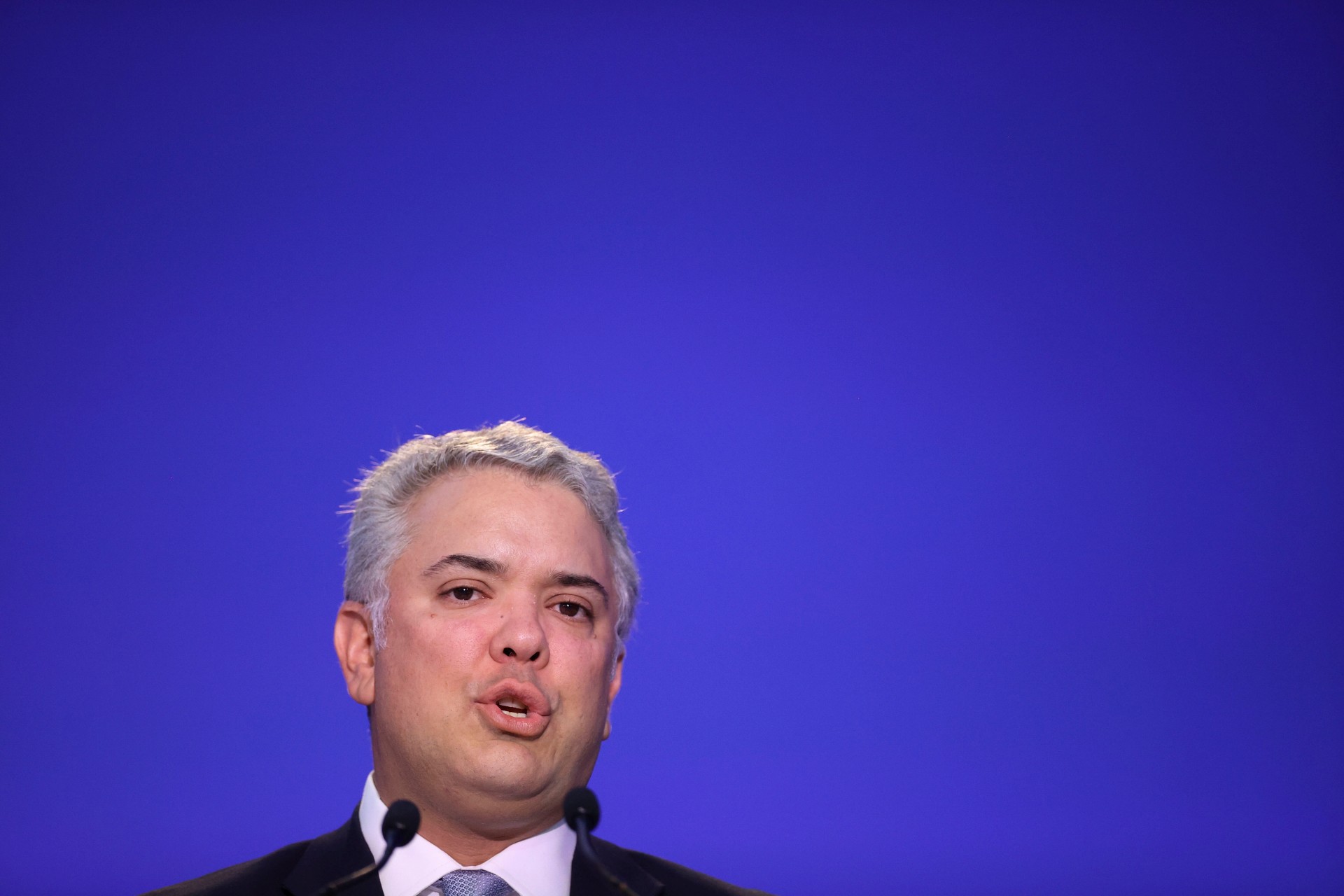
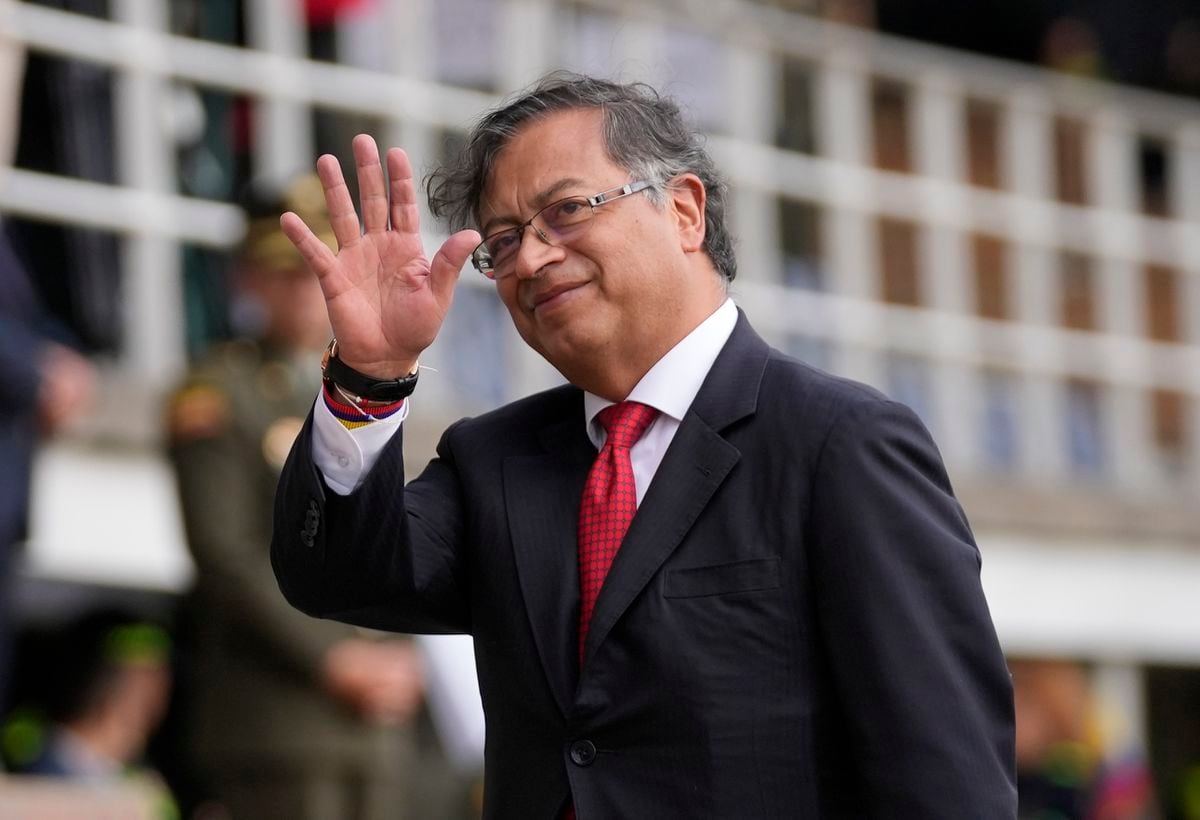
/cloudfront-eu-central-1.images.arcpublishing.com/prisa/62WTZ2YGTKOGTJ6OXJW67JCCME.jpg)
